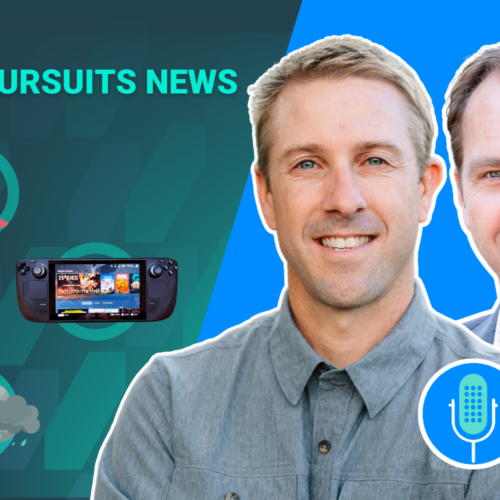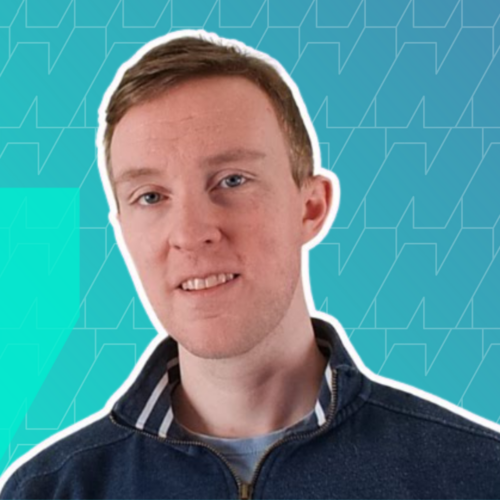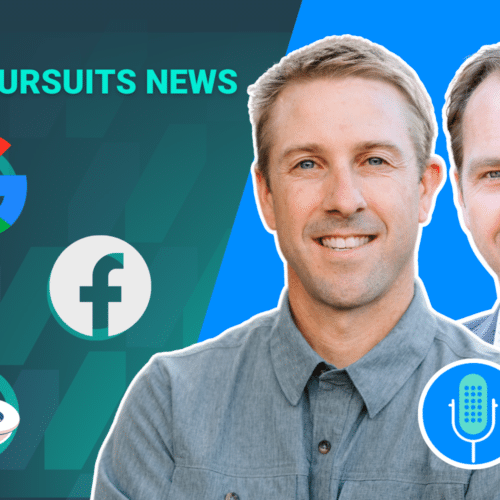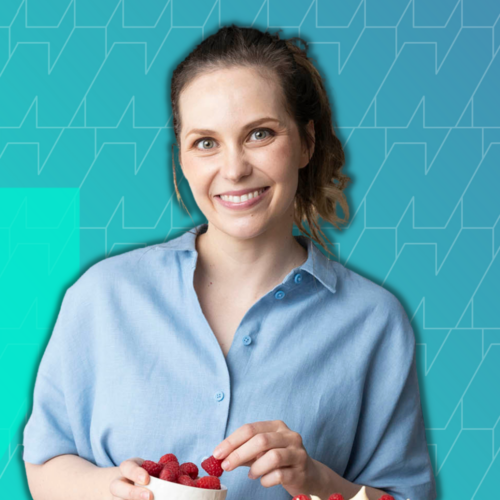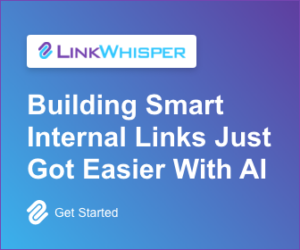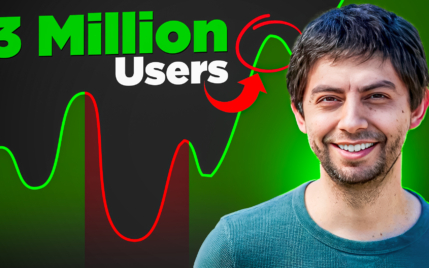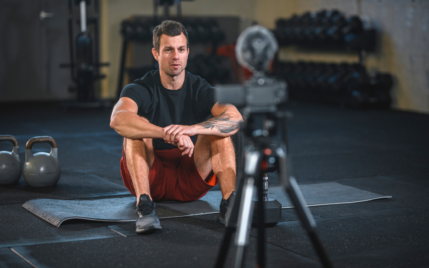Podcast 168: Jesse Lake’s Journey to Building Genius Links and How to Stay Compliant with Amazon Associates

When you buy something through one of the links on our site, we may earn an affiliate commission.
Jesse Lakes is the founder of Geni.us. Genius Links is a SaaS that allows you to localize your affiliate links. In particular, they specialize in Amazon Associates links.
So, if you have visitors clicking on your links outside the US, Genius makes sure they get sent to their local Amazon store (Amazon.co.uk, Amazon.ca, etc.). The end result is higher commissions for you!
In today's podcast interview Jesse and I discuss where the idea for Genius Links came from and how he built it from the ground up. This bootstrapped company now has 11 employees!
We also jump into his somewhat rocky acquisition of Kit.com, now Kit.co. Listen in for this story and why he made the acquisition.
However, the bulk of the interview is spent talking about Amazon Associates compliance. We've all heard the horror stories of accounts getting shut down for non-compliance with their terms.
A couple of months ago, Amazon sent out an email to all Amazon associates with some pretty scary sounding language. We dive into these “new” rules from Amazon and Jesse shares exactly what you need to know to keep your Amazon account in good standing.
I've known Jesse for a long time, and not only is he a super smart entrepreneur, but he's an all around great person. I hope you enjoy the interview!
Want a way to better monetize your Amazon Associates links for international traffic? Try Genius Links for Free right here.
Start a Free Trial of GeniusMentioned on the Podcast
- Geni.us
- Apple iTunes Affiliate program
- Amazon Associates
- Book Linker
- Kit.co
- Genius Choice Pages
- Genius Blog
Read the Full Transcript with Jesse Lakes of Geni.us
Spencer: Hey everyone, It’s Spencer here and before we jump into today’s episode, I want to just highlight a couple of things that are going on with Link Whisper. Link Whisper is a new WordPress plugin that I launched a few months ago, actually at the end of July of 2019. Over that period of time, we’ve received a lot of really positive feedback. People are enjoying the features that allow them to build internal inks much faster, much easier, as you’re writing a blog post. There are link suggestions that are automatically created and it’s as easy as checking a few boxes to add those internal links, so it saves you a ton of time.
Perhaps an even bigger feature is that it allows you to add inbound internal links to a post that you’ve just written. If you have a post that doesn’t have any links pointing to it, you can very quickly get suggestions and add five or ten internal links pointing to that particular post.
The one feature that we just came out with is the ability to do a keyword search for those inbound internal links. If you wrote an article on Canva review, for example, which I did for nichepursuits.com just recently, I could do a keyword search for the term “Canva.” Link Whisper will pull up all of the places that I mentioned Canva, all the articles that mentioned the word Canva on Niche Pursuits, and then as easy as just checking a box, I can add an internal link to that Canva review article from a relevant keyword-rich internal link from another post, saving me tons of time that I might have had to do to google which articles on my site mention the keyword, going in and editing, et cetera.
Overall, I just want to tell you that I’m really excited about the progress we made on Link Whisper. I have tons of new feature ideas that I plan on coming out with, but it’s been very well-received and I hope that you’ll consider checking it out and saving yourself some time if you are into that sort of thing, building internal links on your website. If you are, you can go check it out at linkwhisper.com. Thanks for listening in and we’ll jump into today’s episode.
Hey everyone, welcome back to the Niche Pursuits Podcast. . Today, we’ve got a great guest. It's Jesse Lakes from geni.us and also a recent acquisition they made, kit.co, what we'll dive into. I've known Jesse for a long time. We connected, I believe originally through Rhodium Weekend. Actually, I had a couple of other mutual connections, but there's a great conference called Rhodium Weekend that we met at a couple of times and just recently a couple of months ago.
Jesse is a really smart guy in a lot of regards, but in particular, when it comes to Amazon Associates, and we dive a lot into that. Specifically, what are the compliance issues and other problems that people face when getting their accounts closed down. What are some of those most common reasons?
First, I find it really interesting to hear about Jesse's story, his background why he created Geniuslink, which is an awesome tool that helps you not only track which of your links are getting tracked, but helps you make more money from your affiliate links. One of the biggest features is the geo targeting of links. If you have an Amazon US account but you happen to have people coming from the UK or Australia, geni.us will direct people to the proper geolocated Amazon store front so amazon.co.uk or Amazon Australia, wherever that maybe with just one link. You put it there so you can start making money no matter where your visitors are from. It's a really awesome tool I've used a ton in the past, that can give you a lot of insight into your website, to your affiliate links, and of course Amazon Associates.
We'll jump into why he created that business. Why he made the acquisition of kit.com which is now kit.co (and some of the details surrounding that), and then of course, as I mentioned, some of the most common reasons why accounts are being closed down. A recent email that came out in October from the Amazon Associates program that is a reminder that you need to make certain disclosures so that you are in full compliance with both Amazon and the FTC. With that, I hope you enjoy the interview. Jesse, like I said, really smart guy has a great story and a great business as well. I hope you enjoy the interview.
Spencer: Hey, Jesse. Welcome to the Niche Pursuits Podcast.
Jesse: So excited to be here. Thank you, Spencer.
Spencer: Yup. It is great to have you on. We have known each other for a number of years. I actually don't know quite how long, but we've been to the Rhodium Weekend Conference together a couple of times and that's always a good time.
Jesse: Absolutely and after I met you the first time (I can't remember how long ago it was as well), I've been secretly stalking you. I've been watching you from afar. You do some pretty cool stuff.
Spencer: Thank you. You do as well. We are going to talk about a lot of interesting things that you've done, not only the company you founded but a recent acquisition which has provided excitement as well, we'll talk about. But before we get into that whole story, it would be interesting for the listeners certainly (and I'm sure there's a lot of things I don't know about you as well), can you give us a brief background of your business or working experience prior to starting Geniuslink?
Jesse: Sure. It's a pretty fun story, so get comfortable. I'll try to make this brief. The story starts 2007-2008. I had a series of websites where I took the soundtracks from extreme sports films and I list them out with links to iTunes and Amazon. Obviously, I’m on an affiliate commision whenever someone clicks on one of those links to buy a song. That was working really well for me. It was one of my first websites that actually was generating some revenue. But surprisingly, after a couple of years of writing, I had this really bizzare thing where my traffic was growing exponentially, which was awesome. I was super excited about that. My revenue was really slow to grow, it was very linear.
So 2009, I had this aha moment. It was when I realized that my site's traffic has really started to evolve internationally. Then, my “oh no” moment came shortly after my aha moment when I realized that I was sending all of my international traffic essentially to a broken link. I was sending all of these international people to the US iTunes store and amazon.com where they weren't able to buy a digital product. That started this whole excitement about understanding that links need to be “smart” and based on someone's location where they revise the language. It was probably a more seamless way to get them to that place to buy. Spent some time diving on that which is obviously a thing.
Spencer: We are going to talk about that, but I'm curious why did you start a website essentially selling extreme sports soundtracks? How did that come about?
Jesse: Growing up, I was from Montana. Playing outside was a major piece of my upbringing, so I spend a lot of time snowboarding during the winter and water kayaking, skateboarding et cetera in rural Montana. There wasn't a lot of other options. That was a pretty important piece to me. I worked at a skate shop as well selling snowboards, skateboards, et cetera.
Whenever there is no customers there, I would pop in a video and watch those. It was really this very important piece of watching a video, seeing these amazing athletes do amazing tricks, listening to that music, and then going to listen to that music at a later date and just being able to bring that joy, excitement back to any time, any place with that music.
Music has always been an important piece of my upbringing. I can barely play a radio. I can't play any instruments, but music is definitely putting a lot of important places as far as growth and education moving on.
Spencer: So you started the website. Did you just start the website yourself? Was it just some personal hobby? You enjoyed doing this and build it up?
Jesse: Yeah. I started a couple of different blogs, a couple of websites. Previously I wanted to be an online entrepreneur. I really first started trying to be an online entrepreneur about the time of the dot-com bubble. I remember doing a couple of business plans for college. It made so much sense on paper when I had $70-$80 CPMs and I go to actually see reality and realize that those days were over. It was a $5, $10 max CPMs at that point. It was combining those hobbies of extreme sports and wanting to take a blog, take an online property, and actually do something with it.
Spencer: As you already explain that problem that you had with the international traffic, directing people over to iTunes or Amazon. They were not going to their localized store, so that is where the aha moment of the Geniuslink came along. Go ahead and give us the story of Geniuslink, when you started it, a little more detail, why you started it there, and idea where you are right now.
Jesse: With that aha, I called up my former college roommate, best friend growing up. He was an engineer at Microsoft. He was the one who wrote code for these really challenging problems. I can do a basic HTML, CSS, […] with WordPress enough to make a site pop up. Whenever I had a real problem, I went to him. I just explain this challenge and he's like, “Oh yeah, we can solve that.” We started working on a solution in early 2009. I guess it was February 4th is when I had that aha, but worked on it throughout 2009.
In that process, I actually wrote a book about the iTunes affiliate program at the same time. I was working on the website and also had a little bit of downtime. I was working on putting all these notes that I had and created this book about iTunes affiliate program. I was really excited by it. iTunes is by and far the more lucrative of the two between iTunes and Amazon. I also drank the Apple Kool-Aid, so it was really exciting to be able to do something for the iTune ecosystem.
About the end of the Summer 2009, I had a book, 160 pages, 60,000 words and I was ready to publish it. I found some people on LinkedIn on the iTune side of things and sent them a copy saying, “Hey, I think you're going to appreciate this. I put together some documentation for your amazing program. What do you think?” The day I saw that off (I remember very distinctly), about an hour or so after I sent the email off, I got a cease and desist back from Apple. It was so scary.
Essentially, the woman asked for a phone call shortly afterward, so I hopped on the phone with her a little bit later. The first 30–45 seconds were very civil and polite and the next 45 minutes were just essentially yelling at me, screaming at me. Who was I to be writing up all these lies and spreading all of these misinformation. There's no way I could possibly know so much about this affiliate program. She was the one that managed the affiliate program. This was her domain. I was going to make her life miserable and just like, “Oh, no. This is exactly opposite of what I was trying to do. I was trying to help you get people the right information.”
At the end of the conversation, we made a deal. I would hold up from publishing it. She will have some time to review it. We agreed on four weeks or something. Two or three weeks later, I got an email back from her. She had reviewed it with her team and found three mistakes. I misspelled something somewhere. I included someone's email address that I probably shouldn’t include, and I had flip-flopped one of the variables that is used for the program. At that point, obviously the conversation was radically different. I got invited to actually help manage the affiliate program so it was an opportunity.
I started of as a contractor. I worked from Colorado. I was living in Colorado at the time and the first few weeks of being a contractor, the iTunes affiliate program fundamentally broke. The cookie wasn't being saved. Surely thereafter they made a mandate that someone really needed to own this program, so I got added to a very short list of people that should become the global program manager. Went from being a bum, working on websites, balanced it around writing books in my spare time to moving to Cupertino, having a commute, a cubicle, and being the one person in-charge of the affiliate program worldwide.
It was a crazy experience. It was good for me to see the corporate side of things, but I also saw that this problem that I had, they had plans. I was part of those plans to make it much worse. We dramatically expanded the iTunes affiliate program. When I first started, there were 17 storefronts and when I left a couple of years later there were 45 different storefronts, 45 individual affiliate programs managed by four different affiliate networks. It was just this mess.
If you wanted to promote music and earn a commission from it, you had all these different pieces to cobble together. At that point, saw that the solution I had for my soundtrack websites could really be something much bigger. At the same time, Amazon was radically growing their affiliate program and their footprint globally as well.
I left Apple after a couple of years, recruited my girlfriend (and she's my fiance at that point to join us as well), and struck it off. We were GeoRiot initially and we rebranded it as Geniuslink a couple of years later. That's the gist of the genesis story. I had a problem, made the problem much worse, then started to build a solution for it.
Spencer: That's right. If you want a good business model, just make the problem worse and then solve it for people.
Jesse: Exactly.
Spencer: But certainly that wasn't your doing. It's just Apple and Amazon expanding and growing, and sometimes large corporations do crazy things. What years was that you were actually working for Apple?
Jesse: Started the beginning of 2010. I was there in 2010–2011 and left an early 2012.
Spencer: So 2012 is essentially when things started to take off for GeoRiot at the time?
Jesse: Yes. My fiance and I who is now my wife and mother of my children, was also an Apple engineer. We had met at Colorado. She came with me to California and got a job at Apple as well. She's an engineer also. She spent a little over a year at Apple, didn't love her manager, so we recruited her early on to say, “Hey, we think there's something here. Why don't you go with it?” I joined her full-time shortly afterwards. 2012 is really when two full-time people, one engineer and myself really started hitting it hard, started to put the pieces together, and things really started to come together. We were super focused on iTunes, in particular, and at that time was really this explosion on the app space.
Even though the music was that core piece that got us to solve this problem, the app space was on fire. We fell into this thing where we were helping a couple of major mobile affiliate networks in the App world. Connect some dots and just saw some crazy traffic and some awesome revenue, just […] we’re really fortunate that we didn't have to go raise money, but we were able to bootstrap this and have some pretty decent clients help support that.
Spencer: That’s awesome. So you got some early clients early on that really helped fund the business; at least had that cashflow coming in. I'd like to give people a sense of how well your business is doing now. We skipped several years there in the story on how you got here, but what are you willing to share? Income is great to share. Just anything else that is a success metric.
Jesse: Sure, happy to. Let's take a quick step back and let me just tell you what Geniuslink is real quick. We skipped over that a little bit. We have the fundamental problem we talked about and that's just really having this international traffic, and wanting one link that will work around the board, especially for these programs that are super fragmented. Amazon being the perfect example.
Amazon has got 15 different storefronts now, 14 different affiliate programs, each of those affiliate programs operate independently. You essentially need one link that is going to work across the board. GeoRiot, now Geniuslink was the original solution there. Obviously, Amazon has rolled out a bit of a competition in the last few years but just this today, we have what we call an Intelligent Link Management Platform to work a ton of bloggers, with a lot of YouTubers, and other creatives to ensure that they are earning the affiliate revenue that they deserve and that their global audience is getting the user experience that they deserve. That's Geniuslink in a nutshell.
Fast forward now to your question, where we are at? We've had some crazy ups and downs working inside of Amazon's ecosystem. It caused some challenges. It's also been an awesome opportunity as well, but today we are a team of 11. We should cross about $1.5 million in revenue. We're continuing to be bootstrapped.
Spencer: Congrats.
Jesse: Thank you. It's up and down. We also owned and managed a property called BookLinker which is specific towards authors that are looking for a “universal link” that works around the world. We recently also acquired Kit which is a community for creators and influencers to share the gears and products they love with their audiences.
Spencer: I do want to talk about Kit here in just a minute, but first of all, I just want to congratulate you on $1.5 million in revenue. That's awesome especially being bootstrapped, being able to work over the years, and build a great team of 11 people, to solve what sounds like a simple problem. I don't know the best way to phrase that, but you can pretty easily explain that you want to send all your traffic through one link and be able to monetize it all, right?
Jesse: It's such a simple concept. For better or worse, our clients include BMW, Volcom, Adidas, and Lululemon, all these major companies, household brands have expanded internationally and build region-specific stores, but just haven't really figured out that the internet is global, that when you send an email or put a tweet out, you're going to get people from Mexico, Canada, Germany, and Japan clicking on that link, and if you don't send them to the right spot, you are essentially wasting this significant chunk of your audience. Not only wasting it, it's almost the opposite where it's hard for people to love you. They'll want to click your links if everytime they do, you send them to some place that's just a dead end. It's a waste of time for them. Anyway, I obviously drink my own Kool-Aid. I'm pretty passionate about it.
Spencer: Absolutely, and you should. It's a great solution. Can you tell me how your business model has evolved a little bit over the years? How were you making money? What was the revenue source early on? And how has that changed to today?
Jesse: That's a great question. It really defined us a company as well. When we first started, we had this model called ClickShare. The idea was that when someone came to us, they were getting revenue from one store front and they had some percentage of their traffic that was international. What we did was just said, “Okay, the service is going to be essentially free. Use us instead of your raw link or affiliate link. We are going to make sure that those other links or other clicks are sent to the international destination. We are going to take 15% of your traffic, but only from the international side of things and we are going to use our affiliate track ID.”
So if you had 30% international traffic, we are going to take half of that, now you are monetizing on that other 15% and we are providing you our service for free. We also earn an affiliate revenue at the end of the day and make sure that incentives are very much aligned. If our translation is bad, then no one is making money. If we can make some money off your upside as well, then everyone wants to continue on. That worked incredibly well. The value of a link being monetize correctly was just crazy.
We saw some clients that were 4X-ing their revenue from swapping us on. That was awesome. We started off with iTunes specifically, we opened up to Amazon. I think it was 2013 and it was working really well in the Amazon space as well. Up until early 2014, maybe it was early 2015—I forget a little bit here—it turns out that one of the lawyers on the Amazon UK team didn't like the idea of “syndicating clicks” and they said syndicating clicks was any time that we added our affiliate tracking ID over the top of someone else's.
It was okay. They say, we are signed up for the German program and we used our German ID but if they had a German program signed up and we are part of that 15% ClickShare model, if we were swapping out theirs for ours so we can hit that 15%, they said that's not okay.
Unfortunately, a good chunk of our clients were US-based so UK is one of the areas where earned quite a bit from. With that single program saying, “No, that's not okay anymore,” it really just crumbled the whole model. We moved to a cost per click model. We call it Utility-Based Pricing but the gist was that, you are going to pay us a fraction of a cent for every click that you send through our service. Users earned significantly more for those clicks that we help translate. By the end of the day, you'll still see a pretty solid ROI from the investment. That's essentially the model we had since 2014–2015 but we've messed a lot with pricing.
We tried the traditional SaaS model of having three different price points and then different features for which ones you want to use. That worked okay. We switched to having one plan and then have the price scale with you, give you access to all the features. That works better, but then we really tried to find where does it makes sense to start? Do you want to start off at $9 bill ? Or do you want to start off a $1 bill? If you start off the $1 bill, you're going to pay more per click for those extra clicks. The $9 bill, you get a certain amount of clicks free, but any over it just isn’t a lower price. SaaS pricing is really hard and there's just some smart people out there that write some really good stuff, but everyone's situation is somehow unique.
Spencer: It is. It's just chasing that perfect solution for everyone. You never know if you actually have it. You always just keep testing and tweaking and trying to figure out the pricing model that works best for you.
Jesse: Exactly. Every six months you’ll see a different pricing model on our website.
Spencer: And that's fine. I'll give you one more chance to talk about geni.us. From what we've explained here, we made it clear that geni.us will localize the traffic and will help you earn more by sending international traffic to the right storefront. What are a couple other features or unique benefits that Geniuslinks provides beyond just that?
Jesse: The bread and butter is definitely you give us one single Amazon link or single Microsoft link, or single iTunes link and we are going to make sure it works around the world and make sure you take advantage of the different affiliate programs. But over the years, music plays into this. We've worked a lot with a number of different music labels and publishers, et cetera, and they've really pushed us to expand.
We're focused on the affiliate space. The affiliate is where we come from, but because we've also played in these different industries over time, we've taken care of a lot of the best and practice web marketing technology and try to embed them into our tool as well. From the growth hacking perspective, you can actually embed a Facebook custom audience pixel inside of our links, so if you are going from, say, Twitter to Amazon and you still want to build a custom audience, you can use our links specifically for doing that.
We also integrated A/B Testing into the links as well. You can go as many different destinations as you want. If you want to send 50% of your traffic to Amazon and 50% to, say, B&H Photo Video because you're promoting camera lenses, you can do that on our site and you can make sure it says, “Scientific as testing as possible.” We also allow you to take language, device, operating system, country, as well as date and time, and add all those different pieces of logic together to really customize a link.
We're really fortunate, again going back to the Apple side of things. Apple just released Apple TV Plus and we were really fortunate that the day when they released that on apple.com page front and center was a big banner for that link.
If you look real close, you'll know that was a Geniuslink because that team needed to be able to say, “People on iOS version X need to go here and people on iOS version Y need to go there, and OS X goes here. People on wherever go somewhere else,” and that needs to be done for every country.
We are building crazy rules to make sure that they were handling that traffic perfectly. It's been really fun understanding the need to do attribution and affiliate well, and then just run with that, just taking these other tools and layering them in so you can put all of the pieces on top of it.
That all leads to my favorite thing that we are pushing right now. We are calling it Choice Pages. Again, this was an innovation that came to the music side of the industry, the idea that when you promote a product, that's your most important job as a niche blogger, as an influencer et cetera. That last mile piece can be challenging. There's the international aspect to it, but again, although Amazon is doing incredibly well here in the US, the best I've seen as far as […] only at 50% market share. That means one out of two sales happen somewhere else outside of Amazon.
How can you optimize on that as well? The idea with Choice Pages is you promote one single product but you can include multiple buy buttons under that product. If it's a specific piece of camera gear, Amazon button first, maybe B&H Photo button second, and maybe a Best Buy button third. You are then catering to the whole market there.
It's a little contrary to someone that is on the conversion rate optimization space saying, “Oh, you are adding an extra click. You are going to see a decrease in conversion rates.” We've actually seen the exact opposite. We've done a number of tests now, had a number of clients that really pushed us to the limits. We actually see that by allowing clients to do due diligence and to click on multiple buttons as they need to, the conversion rates are much higher.
They are also opening up affiliate cookies in each of these different stores as well from doing that due diligence. It's actually a win-win for everyone. Clients are seeing higher EPCs and conversion rates on Amazon, but they are also diversifying on the revenue and earning these commissions from other stores as well.
Should Amazon ever throw down the ban hammer (which is we are going to talk about here a little bit), you're not completely in trouble. You have other areas to go through that also allows us to throw in things like the FTC disclaimer and the Amazon disclaimer all in one place.
Anyway, Choice Pages are giving the users choice not only locally but internationally. It seems to be a theme we are pretty excited about.
Spencer: There's a lot of good things going on. I love that you guys are constantly improving, constantly developing, and trying to be a leader in the space. You've done a good job on that.
Jesse: Thank you.
Spencer: You mentioned kit.com. I want to talk about that. You recently made the acquisition of kit.com and that maybe seems a little bit out of the SaaS space, so why did you acquire it? Give us a little bit of the story how that's gone?
Jesse: Let me start with the story of why we acquired it falls into place. My manager, the one that screamed at me who I absolutely love, she's an amazing woman, but she's not technical. She's super smart, but she's not super technical by any stretch. When I first got onboarded, there was another woman on her team name Camille. Camille was definitely much more technical, also a very smart woman, and she helped get me up to speed and so forth.
Camille and I were able to build a really good relationship from my early Apple days. Camille left Apple shortly afterwards, went to YouTube for a little bit, and I heard from her a handful of years later (2015), she's in New York working on a startup called Kit and was curious if I could help share some of my affiliate knowledge with her because they thought the affiliate piece would be pretty important to this Kit project.
We kindled that relationship in 2015, be able to talk at a regular basis about affiliate, and really help give the Kit team some early insights especially into the Amazon Associate's world. Amazon became a pretty important piece of that for what Kit is today and for where we think it's going.
Again, it's a community website for people to share the products they love on a website and these different kits, different curations. Being integrated with Amazon was important to them not only to use their product advertising API where they could pull product information out, but also to help these influencers and creators generate some revenue from these recommendations as well.
Whoever it may be, big name on YouTube, will create and show off the products that they use to make their videos or they recommend it, but also drop in their Amazon Affiliate Prime in the backend, so they can earn affiliate revenue. We saw this will help and enable at making sure that they are happy in a global stage. We're close to it for a number of years.
They were a VC-backed company. Unfortunately, we're not able to raise a Series A after raising the seed round. In 2018, we hit the hard decision that a lot of founders had. They go to the VC route and hit it. “What do we do? We're out of money. Where do we go?” Thankfully, they created relationships with Patreon and Patreon brought them onboard. At that point, unfortunately, Kit was essentially sunset which we're really bummed about because we love the idea of Kit, the idea of curating products, of using Amazon's affiliate program, working with influencers. The whole piece around products is really fundamental to who we are and what we do.
We started having some conversations with them and prior to this challenge, Patreon was excited to sell the assets, but the domain name was still owned by the VC. It never fully transferred over that contingent on more background.
Camille was like, “If you can't get the VC to sell or lease you the domain, no problem from the Patreon side.” It took a long time to put the pieces together, but by early May, we thought we were in a good spot. Patreon was onboard, the VC was onboard, and we were ready to move forward. Then, the Uber IPO happens. It seems like a random comment but it turns out that the co-founder of Uber is also one of the lead investors in this VC, this guy Garrett Camp. Garrett is actually the guy that owned kit.com domain. “Okay, no problem. We'll just have to work with Garrett.”
Garrett, being a billionaire, it means you're a very busy person. That conversation went from moving relatively quickly to moving incredibly slowly. We got to a point where Patreon just said, “If you don't take this site, someone's got to take this site, or else we have to finish this whole […] processes.” We're like, “No. It's an amazing community. We want it. Let's take it.” We actually bought the assets before we finish the deal with the domain, which turned around to bite us, but I'll get to that in a minute.
Now, I'll answer your question. “Why do we buy it?” First of all, the Kit community has over 300,000 creators and bloggers—the two fundamental pieces of this tool for us. Creatives, musicians, and authors being the third. Creatives, creators, and bloggers are really the three pieces of the Geniuslink puzzle, so Kit brought in a massive audience there.
That also gave us a great place where we could dog food our technology. Kit is one of our top 20 clients. Instead of us building something at Geniuslink and still only waiting for people to pick it up, we can build it at Geniuslink, and immediately apply it on Kit. That whole feedback cycle become significantly faster for us.
Back in the affiliate game, we support a lot of affiliate marketers but we're not actually allowed to earn affiliate revenue through Geniuslink due to a policy on Amazon's side. It's really exciting to actually build and earn affiliate revenue again.
Those are the three things that made this Kit acquisition made a ton of sense from our perspective.
Spencer: Very cool. It's a super interesting story. I know we've talked a little bit more in addition to what you shared on the podcast and there's a lot going on there. It sounds like you're still (if I understand it) pretty much right in the mix of it in terms of getting the domain transferred and trying to work through some of those issues, right?
Jesse: Yeah. That conversation's over now. A week before Thanksgiving, we got an update from the VC saying, “Hey. I want you to talk to our general council.” We thought, “Awesome. Garrett's finally come back. We're going to close this. It's going to be great.” Unfortunately, the general council let us know that they were no longer interested in selling us the domain. In fact, they needed to use it for their different one of their sites. They needed it in two weeks. That was a devastating blow.
One of the only reasons we moved forward with the Patreon deal is they included what they were using as their short link at that time, kit.co. We knew the worst case scenario, we had a fallback plan. Fortunately, that fallback plan was put into action just a few weeks ago.
Thanksgiving week, Black Friday, Cyber Monday, we were in the midst of a massive push to migrate kit.com to kit.co. Ahrefs say that kit.com had around 900,000 backlinks and kit.co had 10. We're closing in about 200,000 backlinks for kit.co. It's been just a crazy few feeks. We've sent close to a million emails. It's literally a million emails to the users, to the individuals, follow-ups, et cetera. But it's coming together. It's sad to say that most catastrophes are horrible, but they also bring people together. I feel like the Kit community has never been more of a tight-knit community than right now. People are helping each other out, they're letting people know the issues that are going on. People are filming us videos about how to make the changes. They're sharing these with their communities. We've seen major brands step in and share this change that needs to happen with their audiences.
It's been a ton of work. It's been spectacular just to see how these all comes together. It just really reaffirms that while this has been a nightmare from a new owner perspective, the community is worth it. That the time and effort we're putting into is the right thing to do. It's going to work out the bigger picture.
Spencer: And it does look like, at least right now, kit.com does redirect to kit.co at least as of today.
Jesse: Yup. That was supposed to change on Monday, yesterday. We got a one week extension. After that one week is over, the agreement that we ended up coming to was that we'll have a decent chunk of the URLs redirect for a maximum of six months but it's at their discretion. When your listeners actually get this podcast, kit.com will probably be a different site. kit.co will be the property that the platform, the community, that we're talking about today.
Spencer: Yes, so listeners, please go to kit.co. That's where you can check out the business.
Jesse: Thanks, Spencer.
Spencer: I do want to move on to talk about more Amazon Associates compliance issues.
Jesse: The fun stuff.
Spencer: Yes, the fun stuff. Exactly. You have obviously a ton of experiences you just shared. You've been in the weeds for a long time. In fact, Amazon just came out with an email in mid-October that sounded scary. I know that you actually put a blog post up. I'm going to read the first little bit of that email that Amazon sent out, then I'd like to chat about it plus other things, of course.
It was titled, “Reminder: Associate Program Disclosure Statement.” It said, “This is a reminder of your disclosure obligations under the operating agreement. Anytime you share an affiliate link, it's important to disclose that to your audience. They will trust you more if you are more transparent about what you are directing them and why. To meet the associate program requirements, you must: (1) include a legally compliant disclosure with your links, and (2) identify yourself on your site as an Amazon Associate with a language required by the operating agreement.”
Most people have done number two. We usually have that disclosure in the footer or in the sidebar or somewhere saying, “Hey. We're an Amazon Associate and we earn money,” but that number one seems a little vague. “Include a legally compliant disclosure with your links.” Can you help us all understand this email?
Jesse: When I first read this email, I did not understand it, to be perfectly honest. I saw it came in on a Thursday afternoon or something and I completely ignored it until next week. It just came through and I just didn't do anything. It took a bit of digging into it to really understand. Amazon sends a lot of emails. A lot of it we're talking about deals and so forth. They don’t often send emails in regards to their terms and service except for when they're changing it.
Seeing this email and as a reminder piece, I knew there was something more that needed to be unpacked. It took some time to dig into it, look around, and talk to some of my peers. It really then became incredibly clear.
Amazon has their requirements but there's also these legal requirements. Amazon's requirements aren't legal requirements. They're Amazon's requirements. There's legal requirements and that's FTC requirements. We hear FTC all the time associated with affiliate, but we often ignore it, or at least to a lot of the people I talk to in my cell often ignore it. What this ultimately meant once you really break it down is that there's two requirements. You have an FTC requirement that is at the link level, and then you have the Amazon requirement which is at the site level. That was this big aha.
In fact, with our Choice Pages that I’ve mentioned with Kit, we weren't complying with this. We were close but we weren't hitting it right on the head. That made me realize that this is a bigger issue you poke around. In fact, there is an article that was published by The Verge a number of years ago. It actually said that in YouTube and Pinterest, the vast majority of people are not disclosing their links. This is a huge no-no.
The FTC specifically has language out there that for sponsorship, for affiliate, et cetera, you have to let the consumer know that there's some revenue being exchanged for these recommendations. I just really wasn't happy. People, as you said, were pretty diligent about including that Amazon disclosure. It’s one sentence long, it's pretty simple. Sometimes, they will include it in the sidebar. A lot of times, it was in the footer. Other times, it will be in terms of servers. It will be buried in affiliate disclosure page that's […], that you really obviously had to dig for it to find. There's a lot more.
Spencer: Can you clarify and help us understand how can we comply including that FTC link disclosure? What do we need to do? Let's just say we do have an Amazon Affiliate site. That's our main way of monetization. What do we need to include beyond just a regular footer mentioned of being an Amazon Associate?
Jesse: The Amazon piece, that can be at site level. They actually specified that. They cleared that a bit better. You'll only really need that Amazon line once on your site to fulfill Amazon's rule. But you do need this affiliate disclosure much more prominent and much more often. It needs to be at “link level,” is the word that they use.
With social media, it makes a lot of sense. If you tweet out an affiliate link or you post a video, et cetera, that doesn't really work for long-form websites. If you have a money page that has a multiple buy links for comparison or whatever it may be, you don't want to put a disclosure next to every single link. That's almost what they're asking.
The gist is, you need to have some disclosure at least at the top of the page. If not in every link but at least at every top of the page before they even come to an affiliate link or immediately after the affiliate link to describe that financial relationship. You're just saying, “#Affiliate,” or “I'm an affiliate of Amazon.” That doesn't fly there. It actually has to take that stuff further and give that whole premise of financial responsibility.
Their argument is that you and I, we say affiliate every single day. We truly, fundamentally, understand what it means but our parents may not or our grandparents may not really understand what an affiliate means. They're the audience that we need to optimize for. We need to give this the disclaimer of what that relationship might be. “I earned affiliate commissions,” or “I earned from the links below,” or “I may earn a commission from sales from the links below.” Whatever that may be. It has to be clear, it has to be conspicuous, and it has to give that financial relationship. It has to come either before the links or immediately afterwards.
Spencer: I know a lot of people are using WordPress. There are a lot of WordPress plugins that are affiliate disclosure plugins. It sounds like those will probably work. They usually add a sentence or allow you to customize something right before you blog post. It shows up on every blogspot. It sounds that would probably be sufficient, right.
Jesse: Yes. As long as you're using words or language that hit that nail on the head. Unfortunately, we did a little of a deep look on some of the different websites, some of the more well-known websites that are putting language out there. For example, Wirecutter, which is one of the quintessential affiliate websites that has gone big time. They say Wirecutter is reader-supported. When you buy through the links in our site, we may earn an affiliate commission.
The financial aspect is there, but Amazon specifically doesn't like the idea of mentioning support for their affiliate program or encouraging people to buy. Even though that Wirecutter just […] covers the stuff we just talked about, we're actually starting to encroach upon another violation of Amazon's terms of service that […] the whole supported piece and asking people to click. Again, using a plugin, awesome. Just make sure that you’re using the plugin correctly. You could say that about any plugin.
Spencer: Right, using the right language. There's probably a whole lot more. Is there anything else from either that email? What are some of the common noncompliance mistakes that you're seeing Amazon Associate is making?
Jesse: Pay attention to the FTC part. It's obviously the most relevant, most highly, in the moment. The backstory we've dugged out is that when everyone did a really good job with this Prime Day earlier this year, some people took notice. In fact, the consumer watchdog took great notice and listed off a number of websites and social media accounts to the FTC and said, “Hey, Amazon is flagrantly disregarding these necessary pieces. Hey, FTC, why don't you lean on them and fix this?”
It sounds like that letter of the watchdog rashed up the FTC attention to Amazon. Obviously, Amazon has a lot of government watching over them these days. It sounds like that triggered a serious event which is possibly why we saw this email come through in October. Again, FTC is the super important part.
There's honestly 10 different reasons that we unfortunately see people get their Amazon Affiliate accounts closed. FTC is just being one of them. Another one that's really common is including affiliate links in offline materials—email or PDF, et cetera. Amazon wants to make sure that your affiliate link exists on a webpage. If you want to promote something from an email, send it from an email to your website or send it from—shameless plug—your email to a Choice Page, something's that online so that you can fit that piece.
Another one is around Amazon regularly mentions to people that they can't track the source, or that it's a cloaked link, or it concealed the identity of where the link came from. That has a twofold effect. It's really important that if you're using a link shortener like geni.us or any other tool that doesn't redirect, that you mentioned Amazon in near proximity of that link, just like you have mentioned an FTC disclosure, just so the users know where they're being sent to.
Also, in your Amazon Associate central dashboard, buried deep in the account settings, there's a page where you're supposed to list all the different properties where you actually include links from your affiliate program. If you are posting on social media or you have multiple different blogs that you're using you want to account for, it's really important that you keep that list up to date so Amazon has a good idea of, “Okay. Spencer has these three or four different pages. Spencer's affiliate ID is allowed to come from here. Perfect. We're good to go.”
When you first get your affiliate account, you probably are focused on one side, but if you forget to go back and update that, if you bought and sold maybe a handful of other sites, if those two don't match, you're probably going to get one of those five day love letters from Amazon where they ask you to go through it, clean everything up, and give them a full insight into your properties within five days or risk losing your account.
Spencer: To follow up on one of those, you did mentioned link cloaking or redirecting. There's a lot of confusion around that. Some people say, “Oh. That's a big no-no to have.” It just comes down to a difference of definition to what link cloaking is. Generally speaking, we're all talking about just a redirect. I might use PrettyLinks. It's still nichepursuits.com/amazonlink. That just redirects to my affiliate link.
Can you clarify that? Obviously, that's what Geniuslink is doing. I just want to reiterate that for our listeners.
Jesse: This is a really important point. The definition of cloaking is a little vague. You can look around the internet and see different things. There's two different pieces of Amazon's operating agreement that sit right next to each other. One piece is specifically around cloaking. That's the definition of cloaking that we believe they're implying is that the idea that you're hiding links, that you're using some nefarious JavaScript or something to essentially hide links from web crawlers, from other places.
The second piece of that is using a link shortener, using a tool to help facilitate some of your marketing, better analytics, or the globalization as in Geniuslink, or whatever it may be. Amazon is perfectly fine with that. You just have to make sure that it's clear. You can do that as easily as including Amazon in your proximity. If you're using some plugins that allow the raw link to be shown on hover and then convert it to a localized link or send it through a redirecting service after the click. That's all legit as well.
When you're looking at that, it's really important to break this to a part and know that tools like Geniuslink—there are competitors out there like PrettyLinks, et cetera—are all legit. You just have to make sure that you're consumer, the buyer, know that you're sending them to an Amazon link. They want that shopper trust. They mentioned that at the email that you read earlier. Shopper trust is hugely important to them. It starts with you, on your website, when you recommend a product on Amazon.
Spencer: Do you see a lot of issues or account closures with people surrounding Amazon images? People downloading the images from Amazon and using those? Is that pretty readily caught and get accounts banned?
Jesse: A year or two ago, absolutely. I'd like to think that we're hopefully past that trend. There's a growing number of really good WordPress plugins to build sites off of. Those are 100% Amazon-compliant using the API, et cetera. It seems that hopefully that “whoops,” that “aha,” that lesson, whatever you want to call it, is behind us now. That was a crazy, common, popular issue in the last few years. Thankfully, I haven't seen it too much lately.
Spencer: Okay. Anything else that you are seeing currently or just other tips to make sure that people are staying compliant? Anything else that's been a big issue recently for people?
Jesse: Thankfully, the last month or so has been more quiet than normal, which is great because we work with so many thousands of different Amazon Affiliates, Amazon Associates, we see a wide variety of things come through. It seems that people are learning that you can't take the Amazon Affiliate program for granted.
Amazon has supposedly over a million different publishers that used to be go sign-up and earn a bunch of money. If you do something egregious or make a ton of money doing something egregious, you'll get a flag. Besides that, you're under the radar. That's just not the case. People seem to be doing a much better job educating themselves about the nuances of Amazon's Associate program and following those.
Thankfully, we really haven't seen the trend that we saw the last year or two where things were a bit of a bummer with awesome sites. People trying to do the right thing, which is being oblivious to the fact that having an Amazon operating agreement is there for people to read and understand because it's the rules. You have to play Amazon's game […]. It's Amazon's game. They can dictate from top to bottom how it's played.
Spencer: Absolutely. If somebody unfortunately has broken one of the terms of service, and has gotten their Amazon Associates account closed, what do you think their course of action should be? Do they have much hope after? They usually get a warning. You said it's five days later or something like that, then they say, “Hey, your account is going to be closed if you don't resolve these issues.” Let's say their account is closed. Do they have any recourse?
Jesse: Great question. Let me take just a quick step back. There seems to be about three different buckets that are happening around. One bucket is this, “Hey. We'd like more information about you.” There's a handful of questions and typically in 5 days, […], sometimes 10. These questions you have to submit a lot of information. “Are you doing this? Are you doing that? What are your referrers? Where are your links?” et cetera. That's one side and that's the most mundane. It's a pain in the butt. You need to get through it. It's essentially an audit. Just be done with it. You'll have it, you don't necessarily get in trouble.
The next one is where they'll specifically cite something. Thankfully, most of the time when they cite something, if it's not egregious, they'll give you five days to remedy it. When we get that email, get to work, and it's not going to be a fun five days. In fact, it's not going to be a fun while. You need to clean that up. Sometimes you need to go to extremes to make sure that you're good to go.
After you submit that, unfortunately, you often have to wait for them to review that which can take a couple of weeks before you really know. They'll often leave your account open while they're reviewing it. Not knowing if you crossed all your T's and dotted all your I's is definitely stressful.
The third is when they just straight up say, “Hey, you're in trouble. We don't even want to deal with you,” and you’re gone. Thankfully, I haven't seen as many of those anymore.
With the first one, it's an audit. You typically don't get your account closed on that one. The second one, ideally, you'll get cleaned up. You'll get a […]. If you still do get your account closed, from my understanding, it's okay if you re-apply and open another account once your 100% sure that you've cleaned everything up.
I really encourage you to put the extra work in, take it as far as you can, be as conservative as you possibly can. Give it a few days or weeks to make sure everything's settled out before you try to open a new account. Typically, if you've been closed, they'll let you know. I believed that one after you've been closed will give you some language that says, “It's okay to reapply after things have been fully cleaned up.”
That third one, they really kick you out. They're specifically looking for you and watching you. Trying to sign up for another account is not the right course of action because that honestly buries you even further. In situations where those happen, there really isn't a great way out of that, unfortunately. Your best bet is honestly to try do some networking, find some place where they can take your appeal and hope for the best. It's an unfortunate situation.
Just like you read in the Amazon FBA or other sites, Amazon is a massive entity. They deal with millions of publishers plus millions of sellers. For the most part, their systems are automated and the systems aren’t perfect. It really sucks when you fall through the cracks of that. Unfortunately, it’s not a great way to get through that. But stay positive, keep working at it, keep networking, keep doing things correctly, et cetera. I've definitely seen those reversed.
It doesn’t always happen. Sometimes, it takes some time. I've definitely seen a number where Amazon will go re-examine and say, “Oh, yeah. We made a mistake. You're good to go.” Even if you're super frustrated because you're 100% in the clear, they still make the mistake, and you just can't get ahold of someone, just stick with it. Keep working. We've got faith in Amazon.
If you are a legitimate, good publisher, and they just made a mistake, they want you back in because you're obviously helping them drive sales. They want the good. They don't want the bad. Hopefully that helps.
Spencer: Yeah. Those are great tips. Hopefully, people don't have to go through that situation. If they are getting an email from Amazon or going through something like that, hopefully this is some good advice. Certainly, just for people that their accounts are in great standing, this is a good reminder of what we need to be doing. It's probably a good time to go through an audit on your own site before Amazon has to do that for you. This is going to serve as a reminder for every boy to go ahead and make sure that you're staying in compliance with the Amazon Associates Terms and Service.
Final question here, just open-ended, any final tips that you'd like to share either for Amazon Associates or just bloggers or business owners in general?
Jesse: I guess I beat this drum a little bit earlier, but we have been very deep in the Amazon space for a number of years. We've got very burned by being very deep in the Amazon space for a number of times now. While Amazon's Affiliate program is amazing—I'm a huge fan. We use it. It's almost exclusive source of revenue for Kit. Amazon Affiliates are our bread-and-butter for Geniuslink—Amazon is not the only affiliate program.
As easy as it is to optimize your websites specifically for Amazon, I really encouraged those to definitely make sure Amazon's an important piece of your affiliate puzzle, but I wouldn't put all your eggs in one basket. From my experiences, the good times are good, but you can get an email and it can completely wipe out your company. I've dealt with a few of those now.
Amazon's a great affiliate program. They do a lot of things really well, but at the end of the day, just like Universify, your investment portfolios, stocks, and bonds, whatever it may be, not putting all your eggs in Amazon Affiliate's basket seems to make a lot of sense. It's a hard lesson, it's easier said than done, but if there's one bit of advice, it would be that. Of course, don't run away from Amazon's Affiliate program unless you have to because it converts so well and it's so damn lucrative. Watch out for the bigger picture.
Spencer: Absolutely. Where's the best place for people to go if they want to follow along with what you're doing or stay in touch with you? Is geni.us the best place or anything else?
Jesse: We're not trying to convert massive communities to different domains. I tend to write a lot and most of that ends up on our blog. We have blog.geni.us is probably where you can find me the most. I'm not a huge Twitter user, but that's probably the second or third. LinkedIn is probably the other place where you'll find me online. Sorry, you Instagrammers. I'm not there.
Spencer: That's perfect. Awesome. People can follow along with you if they want to do that. Jesse, I want to thank you again for coming on the Niche Pursuits Podcast. It's been an absolute pleasure.
Jesse: The pleasure’s all mine. Thank you so much, Spencer.
Spencer: Thank you, once again, for listening to the Niche Pursuits Podcast.
Want to learn step-by-step how I built my Niche Site Empire up to a full-time income?
Yes! I Love to Learn
Learn How I Built My Niche Site Empire to a Full-time Income
- How to Pick the Right Keywords at the START, and avoid the losers
- How to Scale and Outsource 90% of the Work, Allowing Your Empire to GROW Without You
- How to Build a Site That Gets REAL TRAFFIC FROM GOOGLE (every. single. day.)
- Subscribe to the Niche Pursuits Newsletter delivered with value 3X per week
My top recommendations

